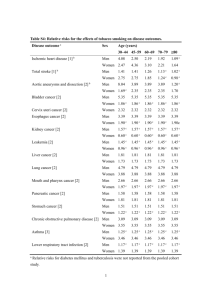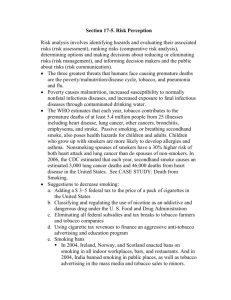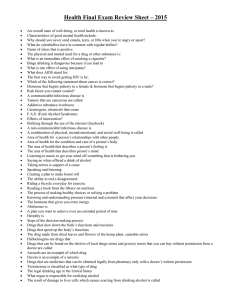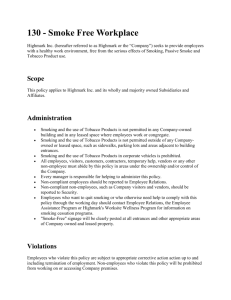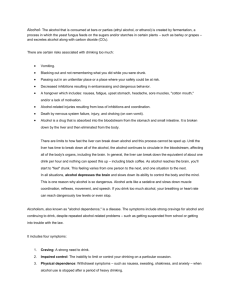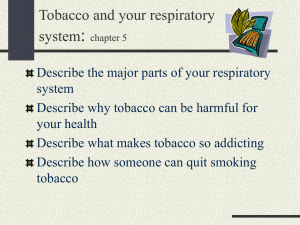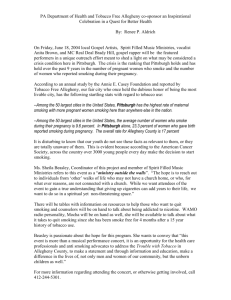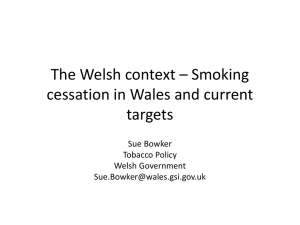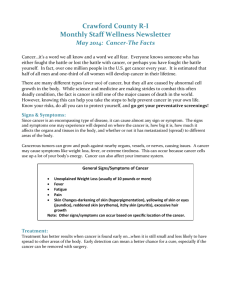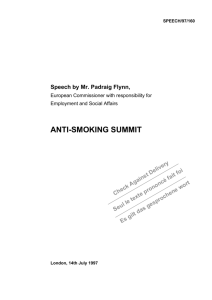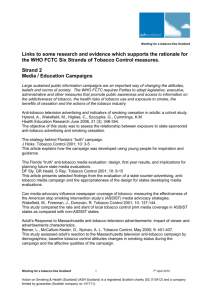Introduction 42kb
advertisement
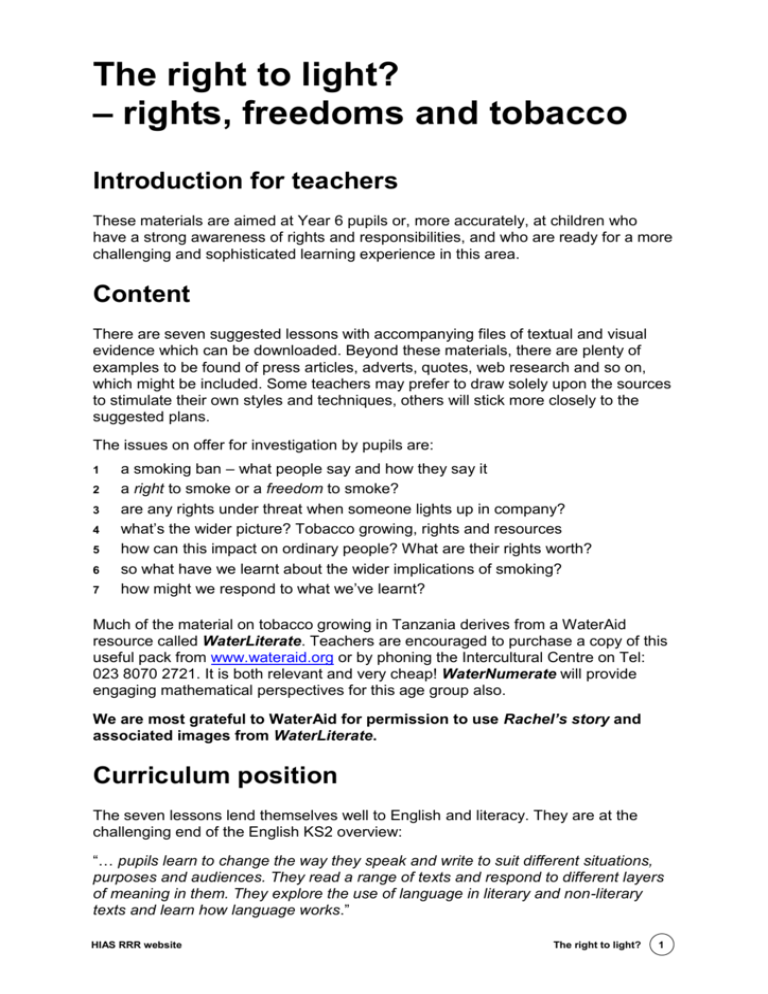
The right to light? – rights, freedoms and tobacco Introduction for teachers These materials are aimed at Year 6 pupils or, more accurately, at children who have a strong awareness of rights and responsibilities, and who are ready for a more challenging and sophisticated learning experience in this area. Content There are seven suggested lessons with accompanying files of textual and visual evidence which can be downloaded. Beyond these materials, there are plenty of examples to be found of press articles, adverts, quotes, web research and so on, which might be included. Some teachers may prefer to draw solely upon the sources to stimulate their own styles and techniques, others will stick more closely to the suggested plans. The issues on offer for investigation by pupils are: 1 2 3 4 5 6 7 a smoking ban – what people say and how they say it a right to smoke or a freedom to smoke? are any rights under threat when someone lights up in company? what’s the wider picture? Tobacco growing, rights and resources how can this impact on ordinary people? What are their rights worth? so what have we learnt about the wider implications of smoking? how might we respond to what we’ve learnt? Much of the material on tobacco growing in Tanzania derives from a WaterAid resource called WaterLiterate. Teachers are encouraged to purchase a copy of this useful pack from www.wateraid.org or by phoning the Intercultural Centre on Tel: 023 8070 2721. It is both relevant and very cheap! WaterNumerate will provide engaging mathematical perspectives for this age group also. We are most grateful to WaterAid for permission to use Rachel’s story and associated images from WaterLiterate. Curriculum position The seven lessons lend themselves well to English and literacy. They are at the challenging end of the English KS2 overview: “… pupils learn to change the way they speak and write to suit different situations, purposes and audiences. They read a range of texts and respond to different layers of meaning in them. They explore the use of language in literary and non-literary texts and learn how language works.” HIAS RRR website The right to light? 1 For those who wish to confine this work to personal, social and health education (PSHE), the seven lessons can readily be taught in blocks of about 40 to 45 minutes. At the core of the PSHE angle will be the recommendation that pupils, “… learn about the wider world and the interdependence of communities within it. They develop their sense of social justice and moral responsibility and begin to understand that their own choices and behaviour can affect local, national or global issues and political and social institutions.” The National Curriculum Handbook for primary teachers in England: Key Stages 1 and 2, 1999, DfES and QCA. Other curriculum links Schools who are taking more integrative and thematic approaches may see opportunities to reinforce work in geography (sustainability, interdependence, environmental change and sustainable development, explain why places are as they are), science (personal health, positive and negative effects) and ICT (research skills, appropriateness of information, plausibility and quality of information). (In this context, at the time of writing, the International Tobacco Growers’ Association website gave no references to research or other sources, nor were the Facts and figures and Recent statistics sections in operation, whereas the other sites generally call upon evidence – rigorously in the case of Action on Smoking and Health (see websites below). This fact might help children discern when someone is trying to prove their point, rather merely making an assertion.) The philosophical enquiry approach (P4C) Philosophy for children (P4C) aims at instigating a more reasonable society through dialogue. A community of enquiry within the classroom might use any of the stimuli in these materials to raise and investigate children’s own questions. This is done by mutual development of ideas and understanding, rather than through adversarial debate. Such approaches are invaluable across citizenship and rights education (see websites below). Some useful websites Action on Smoking and Health www.ash.org.uk United Nations World Health Organisation www.who.int Freedom Organisation for the Right to Enjoy Smoking Tobacco www.forestonline.org.uk World Smokers’ Day www.worldsmokersday.org International Tobacco Growers’ Association www.tobaccoleaf.org News reports www.bbc.co.uk/news The Richard W Pollay 20th Century Tobacco Advertisement Collection Philosophical enquiry for children 2 The right to light? roswell.tobaccodocuments.org/pollay/ www.sapere.net www.dialogueworks.co.uk HIAS RRR website Feedback We are always pleased to hear of ways in which these pages and materials might be improved. We are especially keen to know about successful, practical outcomes in school. Contact Ian Massey, the County Inspector/Adviser for Intercultural Education, with your feedback via E-mail: ian.massey@hants.gov.uk or Tel: 01252 814772. HIAS RRR website The right to light? 3
